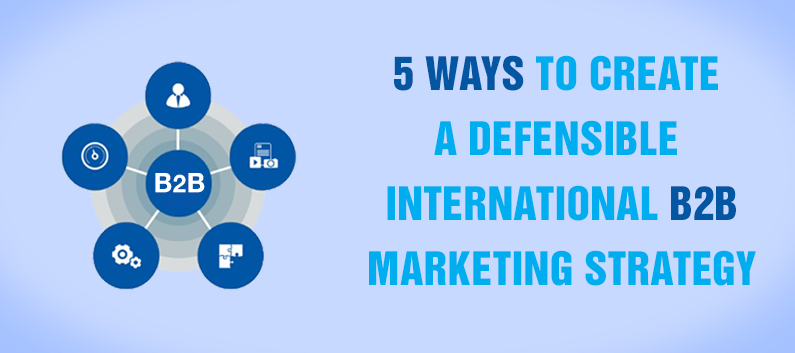
Working in the marketing or data industry in the global space presents its own challenges. Policies regarding privacy and data will vary country by country, so its best...
International guidelines under the guise of the US / EU data protection shield proposed changes are the latest series of laws forcing marketers to ask themselves if this is another over-broad round like Canadian legislation CASL. Will these changes govern all electronic communication and leave the only marketing choice for B2B marketers as one of explicit consent only?
EMM is framing its policy as “no”, citing quality data preparation and implied consent allowances within law as the basis for our decision. The guidelines, which are not yet law, and may never become law if the prior directive passed by the EU in 2003 is any indicator of future adoption, will certainly govern “SPI”, or Sensitive Personal Information. In the US that is currently defined as “any name or address information attached to a driver’s license, social security number, credit card or medical records”.
EMM believes many of the proposed changes within that context are already best practice in the US, and we believe allowances made for B2B communication in the past will continue to be made in the future.
As ethical B2B marketers, we embrace standards of respectful communication. As a data company, self-regulation can be parsed into preventative and protective measures. These measures are outlined below:

Records assembled from social media people directories, guessed through popular email nomenclature, etc. contain a higher degree of “catch all” records which are difficult to detect as a blended group and contain email based threats at a higher degree than manually researched records.
EMM’s data, prior to publishing, is processed through a high volume emailing network with feedback loops that removes email based threats. EMM only scrubs data (still pre-publishing) that passes to the highest standard.
After our data is threat processed, EMM broadcasts to its email inventory annually. This offer gives users an opportunity to opt out and reveals complaint prone users for opt-out processing.
In some marketing geographies, it is impossible for any electronic communication that does not have explicit consent to be compliant. Canada by example, even with explicit consent, says consent is not transferable between parties. In these geographies when email marketing cannot first be pursued without another layer of marketing (phone opt in) we will advise client of same and only supply data for analytic / display purposes only.
Because we believe B2B email marketing can continue to be compliant through sending relevant offers to business executives with relevant job functions we have a degree of care with not allowing inappropriate offers to be broadcast to our records. EMM will only release email marketing data to business with appropriate offers for the job segments they have requested totals on.
Covered in more detail in our “legislation by country” document, allowances in law for business executives receiving communication about their professions to varying degrees by country. This consent basis has no considerations with regard to transfer like explicit consent. It has no geographic restrictions save the in country law in which the marketing takes place.
Relevant B2B marketing continues to have allowances for safe operation in most geographies worldwide. Third party non-government oversight (SpamHaus, Firewall solutions) can be as damaging to a marketer as a fine. For these reasons it is even more important that B2B marketers continue the trend towards highly targeted offers and using modern technologies to know more about a user before transmitting to them at all. To speak to a international data expert . Contact us here!
Well, not literally. No need to fear that we’ve developed a recent interest in world domination. We are VERY happy to announce, however, that we have finalized the first phase of the Every Market Media International B2B Marketing Database!
It’s been a meaty database project for us to be sure as we started with over 120 various data sources that all had to be standardized, cleaned and painstakingly tweaked until we were happy that we had the end product optimized.
It has been quite a fruitful venture, however, as it has resulted in us having 25,975,162 international B2B records with at least a business type and unique email address. Many of the records have not only business type and email, but also full contact information – AKA the “holy grail” to database geeks such as ourselves. [The fully populated records include: business type, contact name, company name, postal, phone and email fields.]
So what do we consider an “international” database? How about 217 countries across most continents?! We’re happy, nay proud, to provide the full list to any interested parties, but here are the top 4 countries by coverage as a teaser:
With over 70,000 different industry types represented, we have the ability within this database to find just about any type of business you can imagine around the globe. Each record on the database has a descriptive Industry label as well as 2-digit and 4-digit SIC Codes available for maximum flexibility in targeting. Though we are very pleased with this product that we have built and feel that it’s ready for public consumption, we’re never satisfied or consider a database to be “complete” as data is fluid and ever-changing and feel there is ALWAYS room for improvement. We’ve already got a 2-prong approach to the next phase in the works, in fact:

Working in the marketing or data industry in the global space presents its own challenges. Policies regarding privacy and data will vary country by country, so its best...

Over the last ten years, there’s been much more of a focus on privacy in Europe.
In the U.S., CAN-SPAM was the line in the sand and everyone got through that...